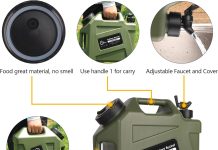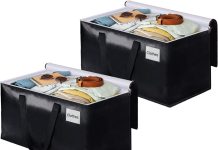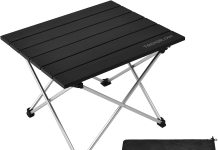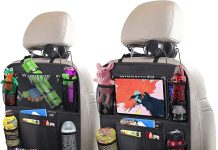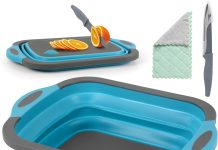Camping with toddlers can be a delightful experience filled with endless adventure and cherished memories. However, it also comes with its fair share of challenges. From unpredictable weather to keeping little ones entertained and comfortable in the great outdoors, there are several factors to consider. In this article, we will be sharing some tips and tricks that will help ensure a successful camping trip with your energetic toddlers, guaranteeing smiles, laughter, and plenty of fun for the whole family. So pack your camping gear, grab your little ones, and get ready for a thrilling outdoor escapade that will leave everyone happy and content.
Review contents
Preparation
Choosing the right campsite
When planning a camping trip with toddlers, it’s important to choose a campsite that is suitable for their needs. Look for a campsite that offers amenities such as flush toilets, running water, and playgrounds. These amenities will make the camping experience more comfortable and convenient for both parents and toddlers. Additionally, consider the location of the campsite. Look for a campsite that is close to nature trails or lakes, so you can easily engage your little ones in outdoor activities.
Packing essentials
Before heading out on a camping trip with toddlers, it’s crucial to pack all the essentials. Make sure to pack enough diapers, wipes, and extra clothes for any accidents or spills that may happen. Don’t forget to bring a first aid kit with essential items like band-aids, antiseptic ointment, and insect repellent. It’s also important to pack plenty of snacks and drinks to keep your toddlers energized throughout the day. Lastly, bring a few comfort items from home, such as a favorite stuffed animal or blanket, to help create a familiar and comforting environment for your little one.
Setting up a toddler-friendly campsite
When setting up your campsite, be sure to consider the needs of your toddler. Set up a safe and secure area for them to play and explore by using portable play yards or safety gates. It’s also important to clear the campsite of any sharp objects or potential hazards that may pose a danger to your toddler. Creating a designated eating area with a high chair or booster seat will help keep mealtime more organized and comfortable for your little one.
Preparing for unpredictable weather
Weather can be unpredictable when camping, so it’s important to be prepared for any changes. Pack both warm and cool clothing options for your toddler to ensure they are comfortable during fluctuating temperatures. Bring jackets, hats, and blankets for cold weather and lightweight, breathable clothing for hot weather. It’s always a good idea to pack rain gear, such as raincoats and boots, in case of unexpected rain showers. Additionally, don’t forget to pack sunscreen and hats to protect your toddler from harmful UV rays.
Safety Measures
Supervising toddlers at all times
One of the most important safety measures when camping with toddlers is to supervise them at all times. Toddlers have a natural curiosity and can easily wander off, so it’s crucial to keep a close eye on them. Assign an adult to be the designated “watcher” during outdoor activities and ensure there is always someone present to supervise your toddler.
Sun protection
Protecting your toddler from the sun’s harmful rays is essential when camping. Apply sunscreen with a high SPF regularly throughout the day, especially during peak sun hours. Dress your toddler in lightweight, long-sleeved clothing and wide-brimmed hats to provide additional sun protection. Find shaded areas for outdoor activities to minimize direct sun exposure.
Bug protection
Camping often means encountering insects, so it’s important to protect your toddler from bug bites. Use insect repellent specifically formulated for children and avoid applying it to their hands or near their mouths. Dress your toddler in light-colored clothing, as bugs are often attracted to dark colors. Consider using mesh netting or screens around sleeping areas to keep bugs out.
Fire safety precautions
Campfires are a common part of the camping experience, but they can pose a danger to toddlers. It’s important to teach your toddler about fire safety, such as keeping a safe distance from the fire and never touching it. Ensure there is a designated fire pit or fire ring to contain the fire and keep toddlers at a safe distance. Always have a bucket of water or extinguisher nearby in case of emergencies.
Water safety precautions
When camping near bodies of water, such as lakes or rivers, it’s important to take extra precautions to ensure your toddler’s safety. Familiarize yourself with any water hazards in the area, such as strong currents or deep areas, and keep your toddler within arm’s reach at all times. Consider using floatation devices or life jackets for added safety during water activities. Teach your toddler basic water safety rules, such as not going near the water without an adult present.
Entertainment
Outdoor toys and activities
Bringing along a variety of outdoor toys and activities is a great way to keep toddlers entertained while camping. Pack items such as balls, bubbles, frisbees, and sand toys to engage your little ones in active play. Consider bringing a small plastic pool for water play or a collapsible play tent for some shaded playtime.
Nature exploration
Camping provides a unique opportunity for toddlers to explore and connect with nature. Take them on nature walks and point out different plants, animals, and insects along the way. Encourage them to touch leaves, observe animal tracks, and listen to the sounds of nature. Use books or nature guides to help identify different plants and animals, fostering a sense of curiosity and wonder.
Scavenger hunts
Scavenger hunts are a fun and educational activity that can be enjoyed by toddlers while camping. Create a list of items or objects for your little one to find in nature, such as pinecones, rocks, or leaves. Provide them with a small bag or bucket to collect their treasures. This activity not only keeps them engaged but also encourages observation skills and fosters a love for the outdoor environment.
Storytelling around the campfire
Gathering around the campfire and telling stories is a classic camping tradition that toddlers can enjoy too. Use age-appropriate storytelling techniques, incorporating funny voices or gestures to captivate their attention. Encourage their creativity by asking them to contribute to the story or act out different characters. This activity not only provides entertainment but also helps to strengthen their language and communication skills.
Sleeping Arrangements
Choosing the right sleeping gear
When it comes to sleeping arrangements for toddlers, comfort is key. Choose a camping crib or portable toddler bed that provides a familiar and secure sleeping space for your little one. Ensure the sleeping gear is age-appropriate and meets safety standards. Sleeping bags or lightweight blankets can provide additional warmth during cooler nights. Don’t forget their favorite stuffed animals or blankets to help create a sense of familiarity and comfort.
Creating a familiar sleep environment
To help your toddler feel more at ease while sleeping outdoors, try to recreate their familiar sleep environment as much as possible. Bring their regular bedtime routine items, such as a favorite storybook or a nightlight, to establish a sense of familiarity before sleep. Use sound machines or play soft nature sounds to create a peaceful sleeping atmosphere. Consider bringing blackout curtains or eye masks to block out any excess light.
Dealing with bedtime struggles
Sleeping in a different environment can sometimes result in bedtime struggles for toddlers. Stick to their regular bedtime routine as closely as possible, including brushing teeth, reading stories, and singing lullabies. Provide extra comfort and reassurance during this transition period, such as extra cuddles or back rubs. Stay patient and understanding, as it may take some time for your toddler to adjust to the new sleeping arrangements.
Mealtime
Planning toddler-friendly meals
When it comes to mealtime, planning ahead is crucial for a successful camping trip with toddlers. Opt for familiar and easy-to-eat meals that your toddler enjoys. Pack a variety of snacks that are healthy and portable, such as fresh fruit, granola bars, or yogurt pouches. Don’t forget to consider any dietary restrictions or allergies when planning meals.
Packing easy-to-eat snacks
Snacks play an important role in keeping toddlers fueled and energized during outdoor activities. Pack snacks that are easy to eat and require minimal preparation, such as cut-up fruit, cheese sticks, or crackers. Consider using portable containers to store snacks and individual portion sizes for convenience.
Involving toddlers in cooking and meal preparation
Involving toddlers in cooking and meal preparation can make mealtimes more enjoyable and interactive. Assign simple tasks, such as washing vegetables or stirring ingredients, to make them feel involved. Use safe cooking tools or kid-friendly utensils to ensure their safety. This not only enhances their confidence and independence but also exposes them to new foods and flavors.
Dealing with picky eaters
Camping can sometimes be a challenge for picky eaters, as they may be less willing to try new foods in an unfamiliar environment. Be patient and continue offering a variety of foods, including some familiar options. Allow them to help with food choices by offering limited options from which they can choose. Remember, it’s important to maintain a positive and relaxed atmosphere during mealtime to encourage healthy eating habits.
Hygiene
Keeping toddlers clean
Maintaining hygiene while camping is essential, especially when it comes to little ones. Encourage proper handwashing before and after meals and after outdoor activities. Use biodegradable wipes or wet towels to clean their hands and faces throughout the day. Keep a designated camping towel or washcloth for bath time and use mild biodegradable soap for cleaning.
Choosing the right camping hygiene products
Choosing the right camping hygiene products for toddlers is crucial to ensure their comfort and safety. Use gentle, hypoallergenic shampoos and soaps that are suitable for their sensitive skin. Opt for biodegradable and eco-friendly products to minimize the impact on the environment. Bring along plenty of diapers and diaper rash cream if your toddler is not yet potty trained.
Dealing with diaper changes in the outdoors
When it comes to diaper changes in the outdoors, it’s important to be prepared and have a designated changing area. Use a waterproof changing pad or a portable changing table to create a clean and comfortable space for diaper changes. Bring sealable bags to dispose of used diapers and wipes properly. Always practice Leave No Trace principles by carrying out any waste to keep the camping area clean and pristine.
Managing Tantrums and Meltdowns
Understanding triggers and warning signs
Tantrums and meltdowns are a common part of toddlerhood, and it’s important to understand the triggers and warning signs. Look for signs of tiredness, hunger, or overstimulation that may contribute to tantrums. Take note of your toddler’s triggers, such as changes in routine or unfamiliar environments, and try to minimize their exposure to these triggers.
Distraction and redirection techniques
When a tantrum or meltdown occurs, distraction and redirection techniques can be effective in diffusing the situation. Offer an alternative activity or toy that captures their attention and redirects their focus. Engage them in a calming activity, such as blowing bubbles or listening to soothing music, to help them regain their composure.
Creating calm-down spaces
Having a designated calm-down space can be helpful for toddlers when they are feeling overwhelmed. Set up a quiet corner with some soft blankets or cushions where they can retreat to when they need a break. Encourage deep breathing exercises or provide sensory toys, such as stress balls or fidget spinners, to help them calm down.
Maintaining a consistent daily routine
Toddlers thrive on routine, and maintaining a consistent daily routine while camping can help prevent tantrums and meltdowns. Stick to their regular nap and meal times as much as possible, even if it means adjusting your outdoor activities. Consistency and predictability bring a sense of security and familiarity to toddlers, helping them feel more comfortable and less prone to meltdowns.
Keeping Little Ones Engaged
Nature walks and hikes
Nature walks and hikes provide endless opportunities for toddlers to explore and engage with their surroundings. Let them lead the way and encourage them to touch, observe, and collect interesting items from the natural environment. Use child-friendly binoculars or magnifying glasses to enhance their experience and encourage curiosity.
Arts and crafts in nature
Encourage creativity and imagination by incorporating arts and crafts into your camping trip. Collect natural materials such as leaves, pinecones, or rocks, and use them to create unique artwork or crafts. Bring along washable paints, markers, or colored pencils and let them express themselves on paper or even rocks they find.
Water activities and water play
Water activities and water play are always a hit with toddlers during camping trips. Bring inflatable pools, water toys, or buckets for splashing and water play. Take them to nearby lakes or rivers for supervised water activities, such as wading or floating on inflatable rafts. Always ensure their safety by providing appropriate floatation devices and supervision.
Nature photography
Introduce toddlers to the world of photography by letting them use a child-friendly camera to capture the beauty of nature. Encourage them to take pictures of flowers, insects, or interesting patterns they come across. This activity not only keeps them engaged but also helps them develop observation skills and appreciate the natural world.
Dealing with Challenges
Dealing with extreme temperatures
Extreme temperatures can pose a challenge while camping with toddlers. In hot weather, ensure your toddler stays hydrated by offering them water frequently. Keep them cool by providing shade, using fans or portable misters, and dressing them in lightweight and breathable clothing. In cold weather, layer their clothing to keep them warm and provide blankets or sleeping bags with higher insulation ratings.
Handling illness or injuries
Even with precautions, toddlers may still fall ill or sustain minor injuries while camping. Pack a well-stocked first aid kit with items such as band-aids, antiseptic ointment, and fever-reducing medications. Familiarize yourself with the nearest medical facilities and emergency contact numbers in case of more serious emergencies. Address minor injuries promptly and seek professional medical advice if necessary.
Dealing with bathroom needs
Handling bathroom needs while camping with toddlers can be a challenge, especially if there are no nearby restrooms. If your toddler is not yet potty trained, bring a portable toddler-sized potty and biodegradable disposable liners. Teach them how to use the potty and encourage regular bathroom breaks. For potty-trained toddlers, find a suitable area away from the campsite to dig a small hole for them to use as a makeshift toilet.
Handling boredom
Even with all the planned activities, toddlers may still experience bouts of boredom. Encourage them to bring their favorite toys or books from home. Stay flexible and adapt to their needs by allowing for unstructured playtime or free exploration. Engage them in simple games or sing-alongs to keep them entertained. Taking breaks from outdoor activities and having quiet time can also help recharge their energy and ward off boredom.
Connect with Other Families
Joining camping groups with toddlers
Joining camping groups or organizations that specifically cater to families with toddlers is a great way to connect with other like-minded parents and create a sense of community. These groups often organize camping trips or activities tailored to the needs of toddlers, providing opportunities for your little ones to socialize and make new friends.
Organizing playdates at the campground
If you’re camping with friends or other families, organizing playdates at the campground can be a great way to keep little ones engaged and allow them to interact with each other. Set up small play areas with toys and games or plan group activities such as scavenger hunts or nature walks. This not only provides social interaction for toddlers but also creates bonding opportunities for parents.
Sharing tips and experiences with other parents
Camping with toddlers can be a unique and rewarding experience, and sharing tips and experiences with other parents can be invaluable. Exchange ideas, recommendations, and insights with fellow camping parents. Learn from their experiences and share your own to create a supportive network of camping families. Online forums or social media groups dedicated to camping with toddlers can be great platforms for connecting with other parents.
Building a camping community
Camping can be more enjoyable when you feel part of a community. Building a camping community with other families allows for shared experiences, friendship, and support. Arrange regular camping trips with the same group of families, creating a sense of familiarity and connection. Take turns organizing activities or meals to distribute responsibilities and enhance the communal camping experience.
Camping with toddlers can be a wonderful adventure for the whole family. By taking the time to prepare properly, ensuring their safety, and providing engaging activities, you can make lasting memories and create a love for the great outdoors in your little ones. Embrace the challenges, stay flexible, and remember to relax and have fun along the way. Happy camping!



